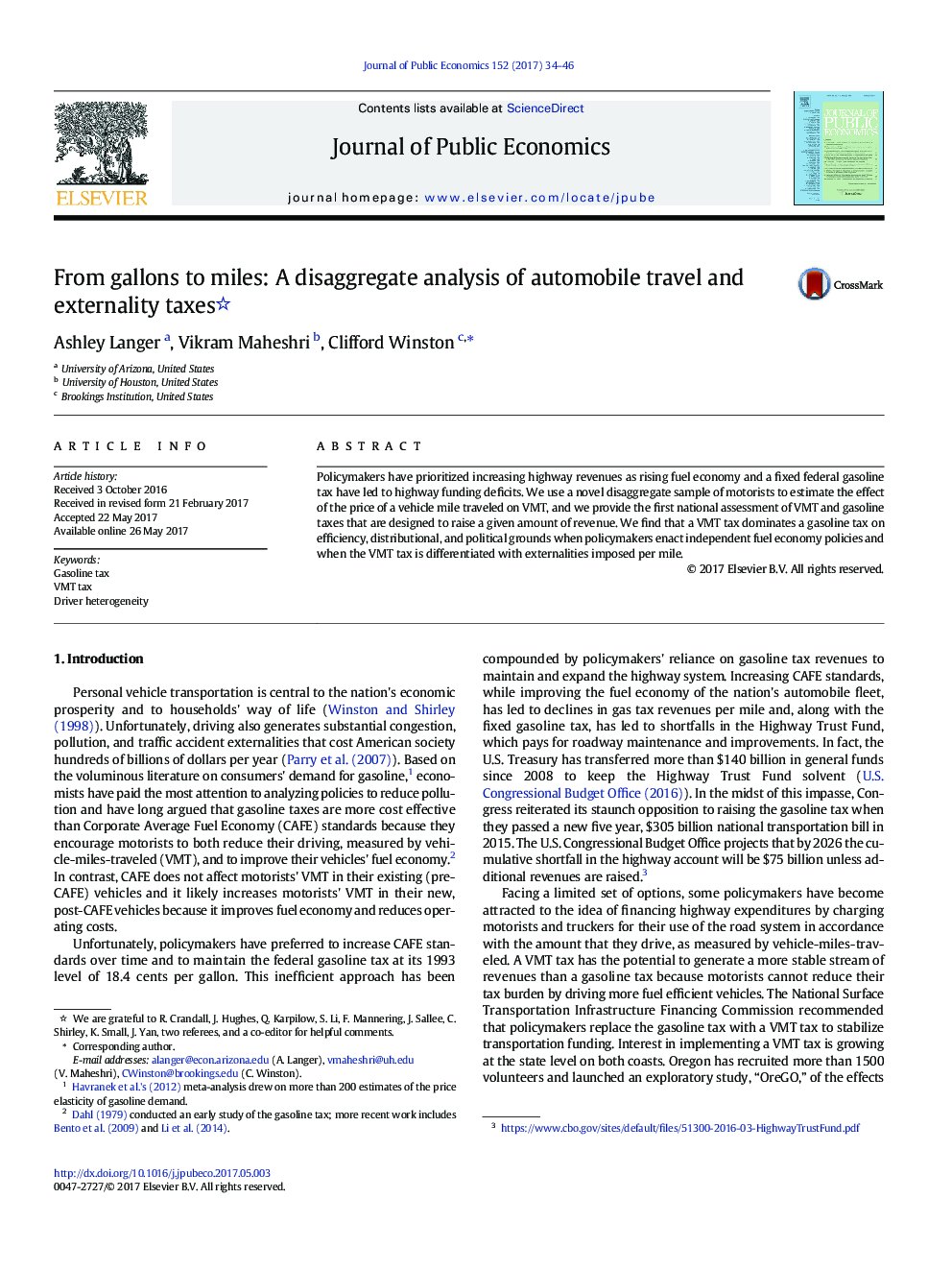| Article ID | Journal | Published Year | Pages | File Type |
|---|---|---|---|---|
| 5101767 | Journal of Public Economics | 2017 | 13 Pages |
Abstract
Policymakers have prioritized increasing highway revenues as rising fuel economy and a fixed federal gasoline tax have led to highway funding deficits. We use a novel disaggregate sample of motorists to estimate the effect of the price of a vehicle mile traveled on VMT, and we provide the first national assessment of VMT and gasoline taxes that are designed to raise a given amount of revenue. We find that a VMT tax dominates a gasoline tax on efficiency, distributional, and political grounds when policymakers enact independent fuel economy policies and when the VMT tax is differentiated with externalities imposed per mile.
Keywords
Related Topics
Social Sciences and Humanities
Economics, Econometrics and Finance
Economics and Econometrics
Authors
Ashley Langer, Vikram Maheshri, Clifford Winston,
